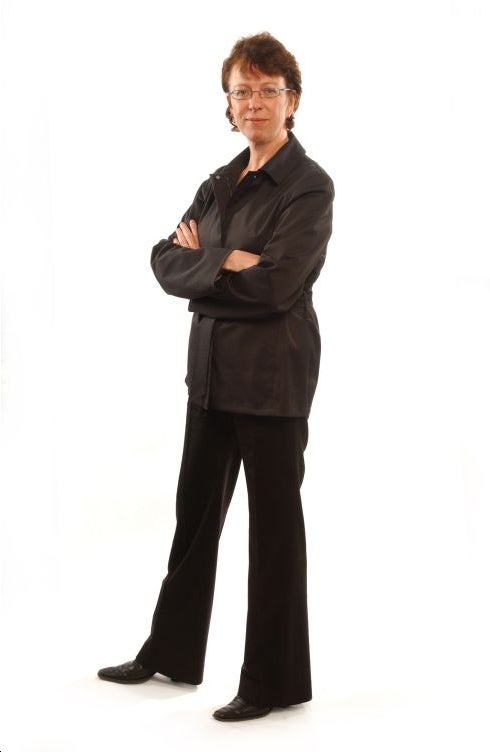Your support helps us to tell the story
From reproductive rights to climate change to Big Tech, The Independent is on the ground when the story is developing. Whether it's investigating the financials of Elon Musk's pro-Trump PAC or producing our latest documentary, 'The A Word', which shines a light on the American women fighting for reproductive rights, we know how important it is to parse out the facts from the messaging.
At such a critical moment in US history, we need reporters on the ground. Your donation allows us to keep sending journalists to speak to both sides of the story.
The Independent is trusted by Americans across the entire political spectrum. And unlike many other quality news outlets, we choose not to lock Americans out of our reporting and analysis with paywalls. We believe quality journalism should be available to everyone, paid for by those who can afford it.
Your support makes all the difference.As the director of Amnesty International UK, Kate Allen (left) knows a thing or two about standing up for what you believe in and taking positive steps to get results. On a more personal level, that’s what making a success of university or college life is all about, and with so many students being members of the human rights organisation, it is clearly something to aspire to. We talked to Allen about her work at Amnesty International, how her career has progressed and her own time as a student.
What inspired you to study philosophy, politics and economics at the University of Oxford?
Well, I think it was just a lovely grouping of subjects that interested me. Also, I come from a family where until my generation, no one went to university, so having teachers push me towards Oxford was very flattering. I was very much encouraged at school and had one of those teachers who people remember all their lives. Mine was called Miss Hullahan and she was just fantastic; she really invested huge time and energy in me.
Did you enjoy the university experience?
It was interesting because it was the first year that my particular college, Brasenose, took female students. So, some of it wasn’t so pleasant because there was a bit of backlash; being one of 20 women among 500 men can be quite pressured. There was some really boorish behaviour from young guys who would refuse to sit next to you because you were a woman, and they hadn’t agreed that women should be allowed into “their” college. I enjoyed my time there though, particularly the academic work and one-to-one tuition, although if you haven’t done the work then it’s immediately obvious!
Did you got involved with student politics?
Yes, I got involved with issues around the Oxford junior common room, and organised discussions with the governing body about all those student things that fire you up at the time. Like most students, it was that mixture of working hard and socialising hard.
Once you’d graduated, how did you get started on your career?
I have never been organised about my career! I was very interested in politics, so I suppose for the first several years after I left university I was thinking about a political career. I spent eight years from my mid-twenties onwards as a local authority councillor for the Labour party in Camden, thinking about whether I would want to stand for Parliament. Towards the end of the Eighties I got a job at the Refugee Council here in the UK, just as the numbers of refugees and asylum-seekers was moving from about 4,000 a year to 40,000 to then 100,000. So, the issue went from being a backwater issue to a major policy issue, and the Refugee Council grew in size and influence. It was very culturally diverse; challenging, interesting and always an amazing place to work. I moved up through the ranks to be deputy chief executive and enjoyed all my jobs there.
When did you move to Amnesty International?
I went straight from my last role at the Refugee Council to my role as director here in 2000. It was quite an interview process. It involved a meeting with the chair of the board and then there was an interview with several members of the board.
What does your role involve?
The massively wonderful thing about my job is that it varies so much.We are a membership organisation with two million members worldwide, a quarter of a million of them here in the UK.We are genuinely a democracy and involve our members, who are troops in the sense that they do play an enormous role in our campaigns. So, meeting and talking to members in different parts of the country, is a big part of my job. I also look at how our campaigns are working, as well as doing the intricate, detailed management side of the organisation, making sure that we are at the cutting edge and that we stay there.
You have a lot of student members, don’t you?
Absolutely. Here in the UK we are very vibrant, totally keyed into universities and colleges. The movement has invested significantly in ensuring that we are reaching out to young people and that they are a central part of our movement – there isn’t a separate youth wing.
What are your thoughts about international students studying in the UK?
It’s absolutely fabulous. Just recently, it was great being at Liverpool John Moores University, seeing young people get their degrees and how diverse that group of young people were and what richness it brings to that university. There is a particular connection between that university and Malaya, and that has been built up – it’s just lovely to see things like that.
- To find out more about Amnesty International, visit www.amnesty.org

Join our commenting forum
Join thought-provoking conversations, follow other Independent readers and see their replies
Comments